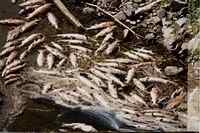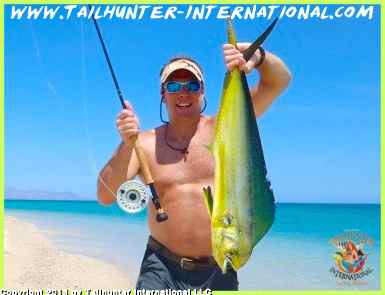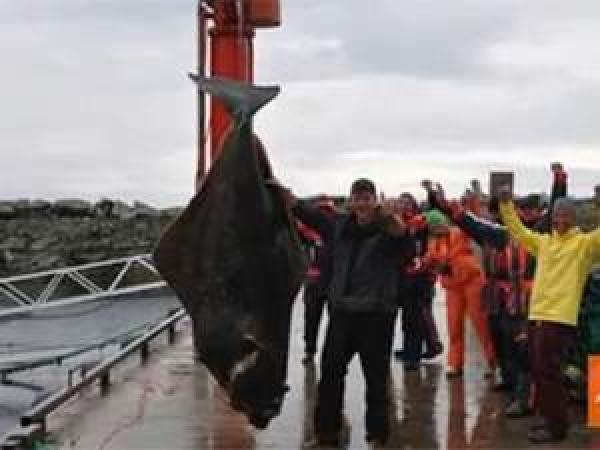The Fight For The Trinity's Water Continues.

by SportfishingReport.com Staff
8-20-2013
Website
Chinook salmon are already heading into the Klamath and Trinity Rivers -- straight into the teeth of one of California's worst water years. Waiting for them are low flows, warm water, abundant parasites and the kind of crowding that led to the infamous Klamath fish kill of 2002 -- where upwards of 60,000 salmon died.
In early August -- with an eye towards avoiding a replay of the 2002 disaster -- the Bureau of Reclamation (BOR) issued a plan to release an additional 109,000 acre feet down the Trinity River. These additional flows would cool the water, flush out the parasites, and relieve the stresses on migratory fish caused by crowding.
This move was widely supported by tribes, commercial fisherman, and conservation groups (including CalTrout who reviewed the proposal with the BOR because of our participation in the Trinity River restoration Project).
Unfortunately, the release plan sparked a lawsuit by the Westlands Water District, claiming these additional flows will jeopardize their flow allocations in future years. A Fresno area Federal judge issued an injunction against the releases (which were supposed to begin last week), and will decide the fate of the Klamath's salmon this Friday.
The drought is hard on every sector of the state. But let's put the demands on the Trinity's water into perspective.
Trinity Lake currently holds 1.4 million acre-feet of water and is at 60% capacity. These emergency flows do not curtail this year's water deliveries to Westlands (they already got their deliveries) and make up only 4% of water in Trinity Lake.
In other words, Westlands is willing to throw the dice on the Klamath's salmon -- despite the very limited amount of water involved.
CalTrout supports these additional releases; they're needed to prevent another fish kill in the Klamath. Kudos to the Hoopa Valley Tribe and Pacific Coast Federation of Fisherman's Association for intervening in the case.
Remember -- all this is happening in realtime. Additional flows are needed now; salmon are already making their way into the lower river and the sizable projected run of 272,000 fish will peak in September.
An evidentiary hearing will be held this Wednesday (August 21) in Fresno. Scientists representing the BOR and the Hoopa tribe will present the facts and make the case for increased flows to protect salmon.
The judge's decision is due on Friday August 23rd. Should the decision go against the Klamath's salmon, then Californians will then likely see the very real results of another skirmish in the state's water wars. In fact, the Redding Record-Searchlight noted:
Reclamation's doing the right thing in leaving enough water in the river for fish to thrive, despite the real costs. The Westlands lawsuit just confirms that down-state irrigators' thirst, in a pinch, will be slaked at the North State's expense. And if the suit succeeds and the fish suffer as the worst-case scenarios predict, a few thousand extra acre-feet of Trinity Water won't be nearly enough to wash the stink of dead fish off the irrigators' reputation.
This fight offers us yet another example of the need for a more comprehensive, watershed-wide approach to managing the Klamath river and its tributaries.
We believe the Klamath Agreements (the KBRA and KHSA) provide real-world, realtime processes that will lead to a better managed system. The agreements remove the Klamath's salmon-killing dams, manage flows in real-time, improve water quality and restore vital habitat.
The alternative is to continue lurching from crisis to crisis in the Klamath. That's bad for its fish and those who depend on them - and far more expensive than the alternatives.
After the decision is handed down, we may very well need your help to protect Klamath and Trinity Salmon. Or celebrate a favorable decision. Either way, we wanted you to be informed.
More Reports

8-20-2013
"No doubt this is dorado season," wrote Jonathan Roldan for his weekly report August 19, "in full-color and full-turbo right...... Read More

8-19-2013
An very happy angler has broken the world record for largest Atlantic halibut caught, by catching a 513-pound halibut off...... Read More
